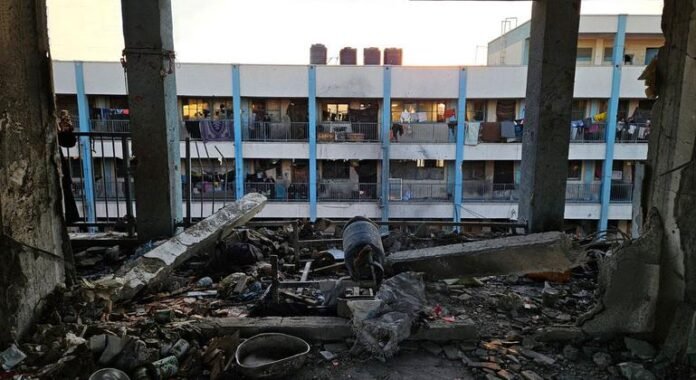Speaking to reporters at UN headquarters in New York on Friday, Philippe Lazzarini stressed that the deal was just the first step in addressing the region’s huge humanitarian challenges.
He, along with UN Secretary-General Antonio Guterres, called on all parties to fully implement the ceasefire and ensure unhindered humanitarian access to meet urgent needs.
“UNRWA stands ready to support international aid operations by increasing aid distribution,” he said.
Threats to Israeli Parliament Acts
Philippe Lazzarini also drew attention to an imminent threat: the imminent implementation of legislation by the Israeli parliament, the Knesset, that would end UNRWA’s operations in the Israeli-occupied Palestinian territories.
He warned of dire consequences, particularly in Gaza, where the agency is the backbone of the humanitarian response.
“Isolation of agency will accelerate the disintegration of social systems,” he said.
“Disbanding UNRWA now outside the political process would undermine the ceasefire agreement and hinder Gaza’s recovery and political transition,” he explained.
Disinformation campaign
The agency’s commissioner general also cited an aggressive disinformation campaign targeting the agency.
“Recently, billboards and advertisements accusing UNRWA of terrorism have been seen in many cities, including New York,” he said.
He said that the money for these hoardings and advertisements was given by the Ministry of Foreign Affairs of Israel.
He explained that such campaigns put UNRWA staff at risk, encourage harassment and undermine confidence in the international community’s ability to act.
Beginning of political structure
Looking to the future, Philippe Lazzarini emphasized the importance of moving UNRWA’s services within a political framework envisioned by the Global Coalition for a Two-State Solution.
“We face a clear choice: either we allow UNRWA to collapse due to Knesset legislation and funding freezes by major donors, or we allow the agency to fulfill its mandate within a political framework,” he said. may allow.”
This transition must include cooperation with strong Palestinian institutions to avoid chaos and preserve essential services, he said.
Cooperation with the Palestinian Authority
Philippe Lazzarini said UNRWA was already cooperating with the Palestinian Authority, which runs services in the Israeli-occupied West Bank. This cooperation is to meet immediate healthcare and educational needs in the Occupied Palestinian Territory.
He noted that the agency is the largest provider of primary health care in Gaza, handling about 17,000 medical consultations per day. It is the second largest healthcare provider in the West Bank after the Palestinian Authority.
He emphasized the critical role of education in securing the future of Palestinian children, many of whom now live in the rubble of Gaza.
“If we fail to restore education in Gaza and preserve it in the West Bank, we will sacrifice an entire generation of Palestinian children,” he warned.
Urgent application
Philippe Lazzarini drew attention to the agency’s precarious financial situation and called on donor countries to increase donations, disburse allocated funds without delay and reconsider the return of any funds currently withheld.
He warned that in the absence of immediate financial support, UNRWA’s ability to continue its life-saving work would be at serious risk.
The Commissioner-General also told the press that he called on the Security Council to take decisive action to prevent the collapse of UNRWA’s operations.

